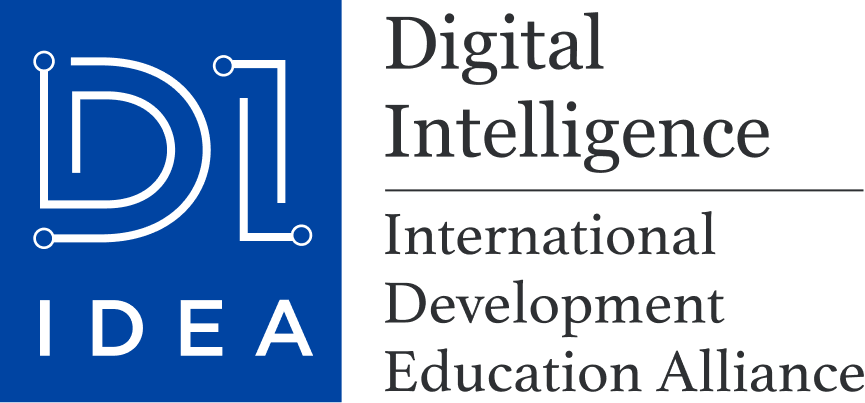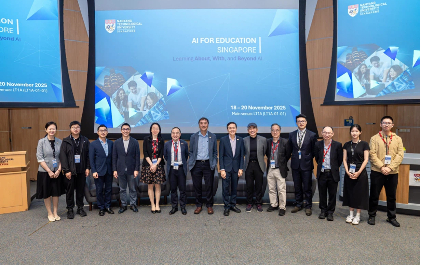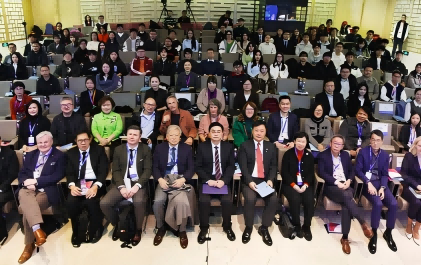From 7 to 9 November, the sub-forum "Education in Ten Years: Practices and Reflections in the Digital Intelligence Era” of Beijing Forum 2025, hosted by the Digital Intelligence International Development Education Alliance (DI-IDEA), took place. More than 700 participants attended the event, including representatives from the Department of Higher Education of the Ministry of Education, the Higher Education Institutions Teacher Online Training Center, China, member universities of DI-IDEA, education authorities from provinces, autonomous regions and municipalities, and over 400 university teachers’ teaching development centers. University leaders, experts and scholars, enterprise representatives and students came together to explore new trends in the future development of digital intelligence education.
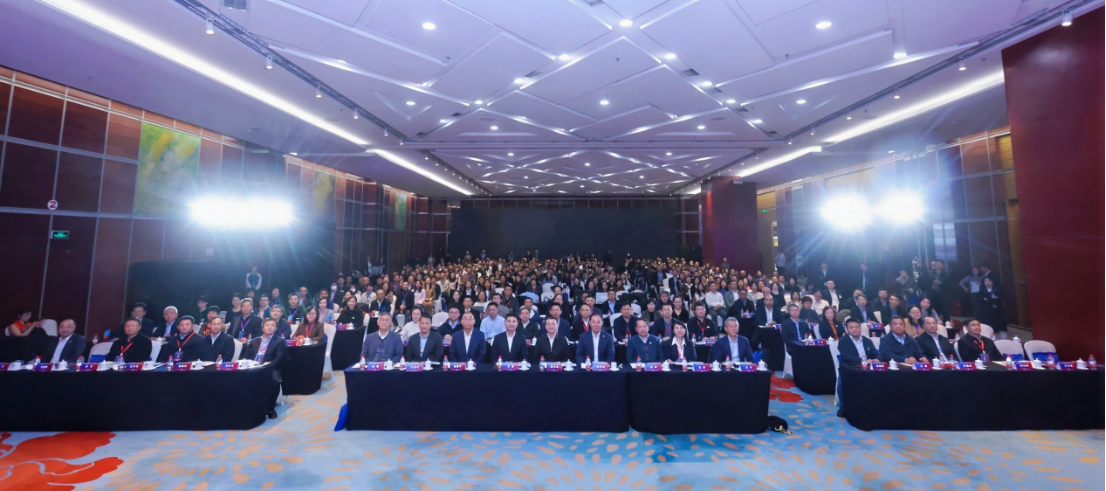
Group photo of guests
On 7 November, the 2025 National Conference on University Teachers’ Teaching Development Centers, co-hosted by Peking University and the Higher Education Institutions Teacher Online Training Center, China, was held as the first event. Zhou Tianhua, Director-General of the Department of Higher Education of the Ministry of Education, attended the conference and delivered a keynote speech. University leaders including Yang Xianjin, Party Secretary of Tianjin University, Xu Kun, President of Beijing University of Posts and Telecommunications, Liu Chao, Party Secretary and President of Higher Education Press, and Jiang Guohua, Deputy Secretary of the Party Committee of Peking University, were also present. Zhang Ze, Director of the Higher Education Institutions Teacher Online Training Center, China, delivered a work report, and Shen Qiang, Executive Deputy Director, presided over the meeting.
In his keynote speech titled “Grasping the New Situation in the Development of Higher Education and Comprehensively Enhancing Teachers’ Capacity to Teach and Educate Students”, Zhou Tianhua emphasized the need to thoroughly understand the new arrangements and requirements put forward by General Secretary Xi Jinping and the CPC Central Committee. He called for actively recognizing, responding to and driving change, accurately understanding the new situation of reform and development in higher education, and proactively addressing the opportunities and challenges brought by artificial intelligence.
Jiang Guohua stressed that, in promoting digital intelligence education, Peking University has always adhered to the concept of “student-centered growth”, emphasizing humanistic care, ethical reflection and social responsibility, and is committed to cultivating a new generation with a strong sense of national commitment, global vision and innovative spirit.
Peking University was commended as an exemplary case in national university teachers’ teaching development, and joined the National University Teachers’ Teaching Development Alliance as one of the initiating institutions.
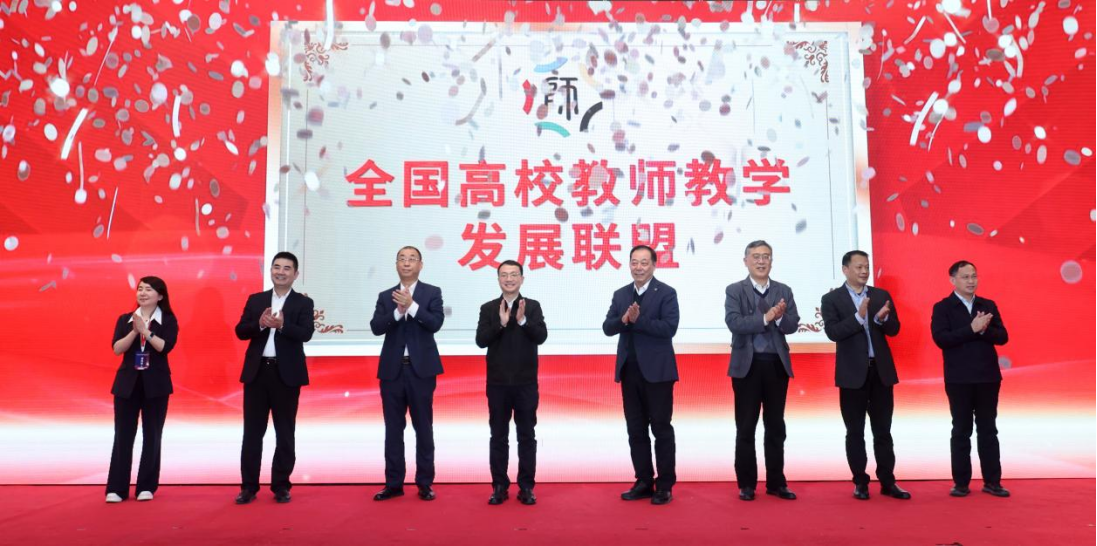
Inaugural ceremony of the National University Teachers’ Teaching Development Alliance
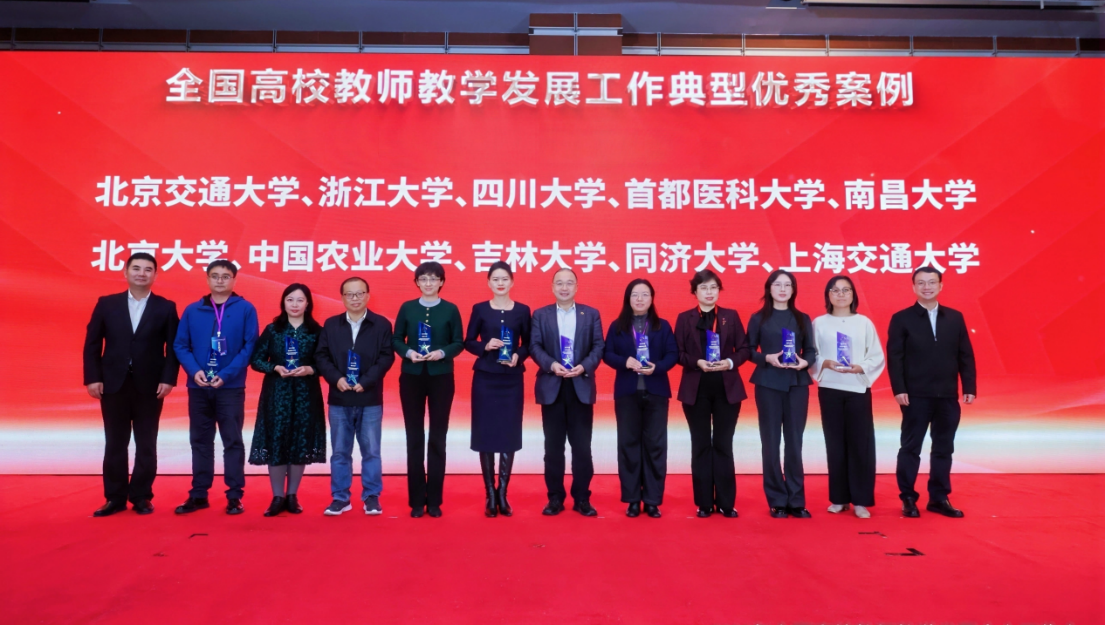
Commendation of exemplary cases in national university teachers’ teaching development
On 8 November, keynote speeches were delivered by Zhang Ze; Wang Quan, Vice President of Xidian University; Lu Fang, former Vice President of Fudan University; Li Guoxiu, Vice President of Beijing Jiaotong University; Sun Hua, Director of the Office of the Provost and Director of the Center for Excellent Teaching and Learning of Peking University and Secretary-General of DI-IDEA; He Fang, Director of the Academic Affairs Office of Tianjin University; Hu Xiaoyong, Director of the Teacher Teaching Development Center of South China Normal University; Jaeho Yeom, President of Taejae University; Samantha Smidt, Director of the Teacher Teaching Development Center of King’s College London; Claire Gordon, Director of the Teacher Teaching Development Center of the London School of Economics and Political Science; Ho Shen Yong, Executive Director of the Institute for Pedagogical Innovation, Research & Excellence (InsPIRE) of Nanyang Technological University; Julia Chen, Director of the Educational Development Centre of the Hong Kong Polytechnic University; and Matthew Kaplan, Executive Director of the Center for Research on Learning and Teaching of the University of Michigan. The meeting was chaired by Feng Jiaqi, Deputy Director of the Higher Education Institutions Teacher Online Training Center, China.
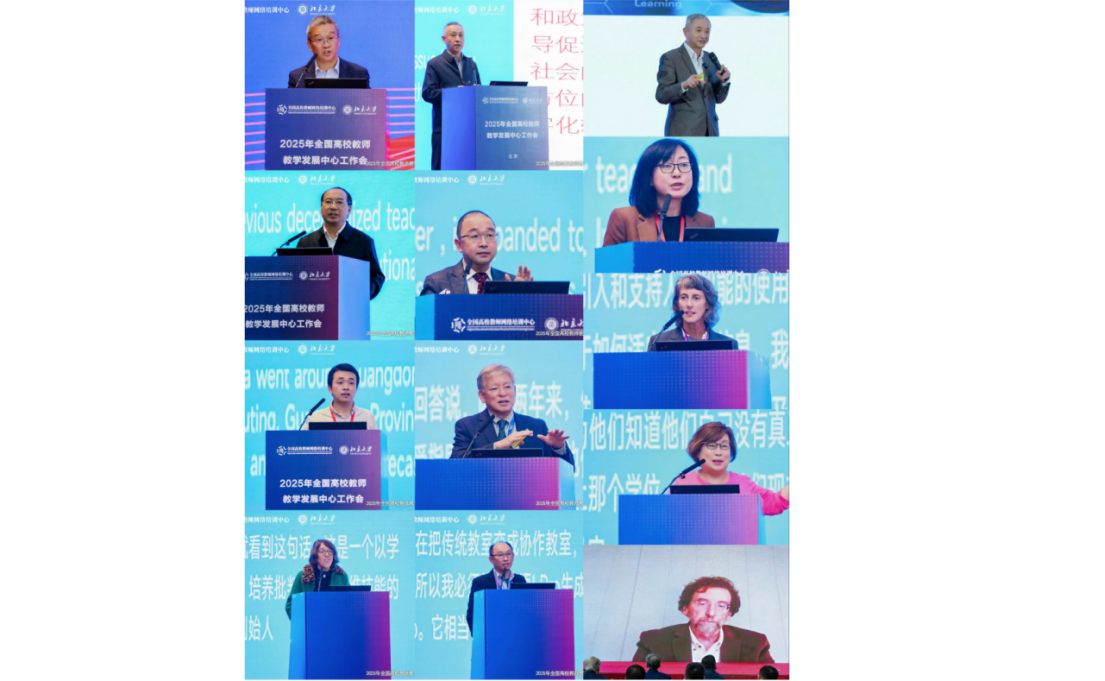
Keynote session
Punchada Sirivunnabood from Mahidol University, Simon Walker from University College London, Zhou Mingming from the University of Macau, Xu Zhongfeng from Xi’an Jiaotong University, Wu Wei from Ningxia Institute of Science and Technology, and Meng Jia from Shanghai Jiao Tong University held discussions around “Education in Ten Years” in a roundtable forum chaired by Sun Hua. Qin Jiahui from the Chinese University of Hong Kong, Nghiem Xuan Huy from Vietnam National University, Hanoi, Chen Xuemin from Wuhan University, Wang Guangzhi from Harbin Institute of Technology, Dang Yuewu from Sichuan University, and Sha Lele from the University of Macau discussed “AI-Empowered University Teachers’ Teaching Development” in a roundtable forum chaired by Wang Yishu from Jilin University.
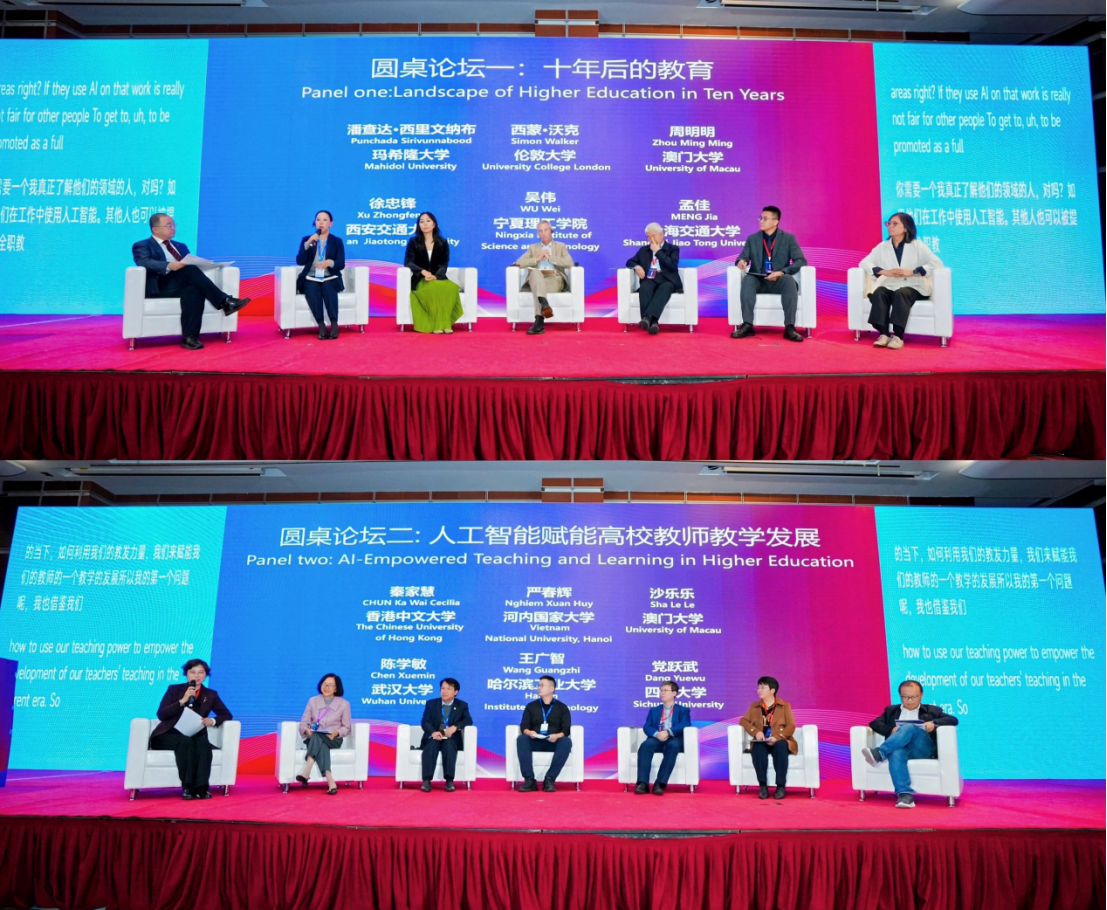
Roundtable forum session
In DI-IDEA’s “Digital Intelligence Education Series”, the book Guide to the Boundaries of AI Applications in Higher Education 2.0 was jointly released by Shen Qiang, Sun Hua, Lu Fang, He Fang, Xu Zhongfeng, Hu Xiaoyong and Huang Wenbin, Associate Professor of the Department of Information Management of Peking University; The Cutting Edge of International Digital Intelligence Education: Inclusion, Equity, and Synergy was jointly released by Jaeho Yeom, Sun Hua, Wang Heling, Editor-in-Chief of Beijing People’s Publishing House, Samantha Smidt and Simon Walker.
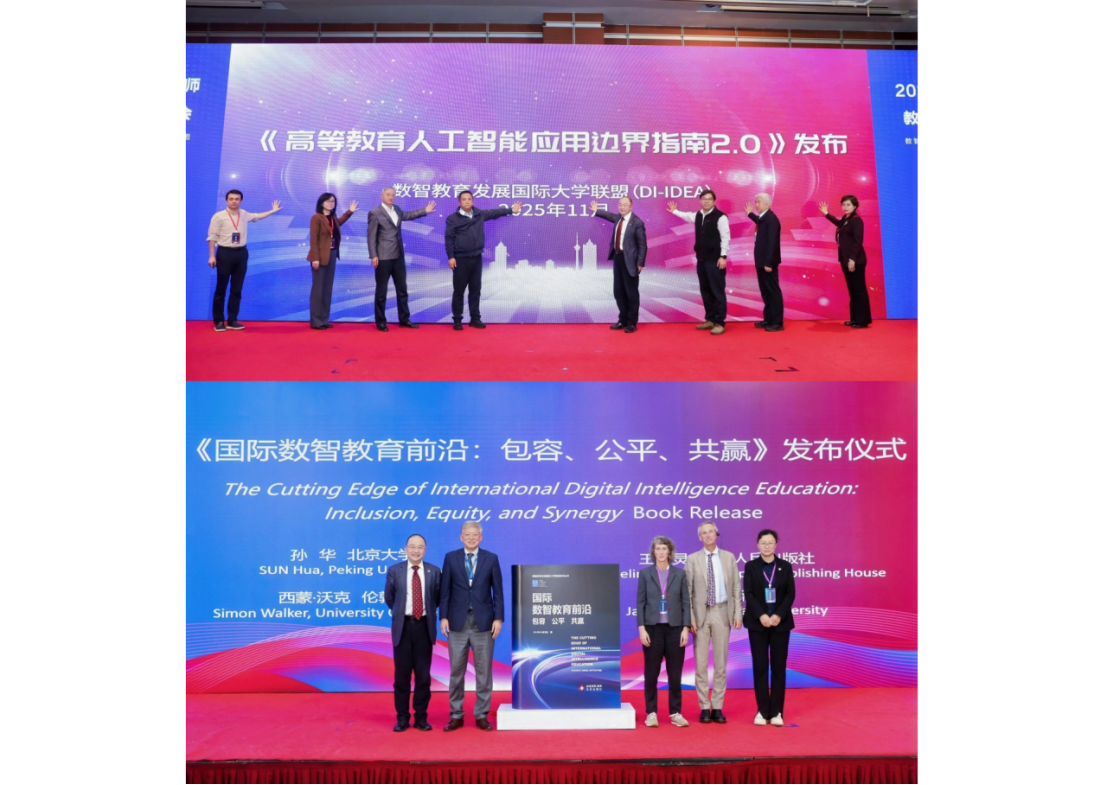
Book launch site
On 9 November, the Presidents’ Forum was chaired by Zhang Ying, Deputy Secretary-General of DI-IDEA and Vice Dean of Guanghua School of Management of Peking University.
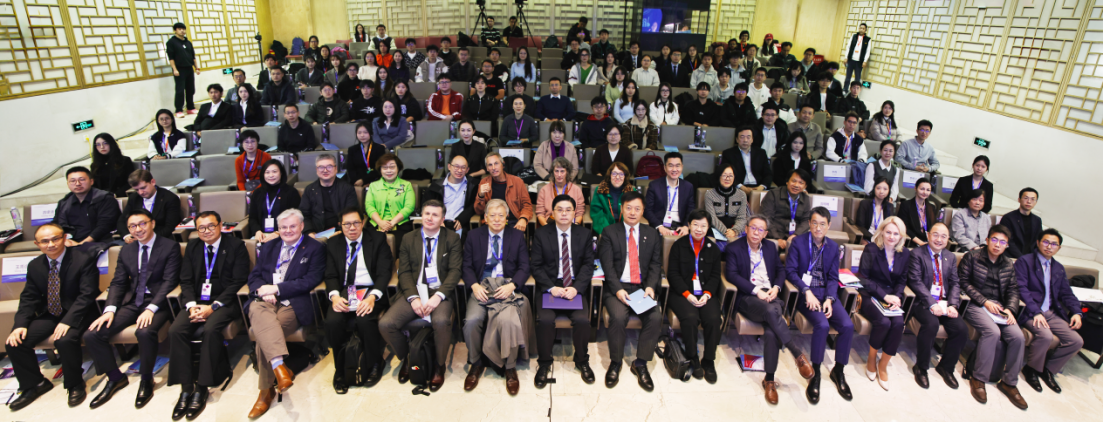
Group photo of guests
Fang Fang, Member of the Standing Committee of the Party Committee and Vice President of Peking University, shared Peking University’s thinking and practice in the field of digital intelligence education in his speech. He pointed out that the ultimate value of technology lies in empowering the all-round growth of people. He noted that Peking University has incorporated artificial intelligence into its top-level design and looks forward to working with universities around the world through the DI-IDEA platform to jointly promote technological progress while also shouldering the responsibility of safeguarding technological ethics and humanistic values.
Jaeho Yeom, Qin Sizhao, President of Lingnan University, Andrei Karol, President of Belarusian State University, and Winston Ong, Vice President of the Singapore University of Social Sciences, discussed “Practices and Reflections in the Digital Intelligence Era”. Lily Kong, President of Singapore Management University, Tan Tai Yong, President of the Singapore University of Social Sciences, Supasawad Chardchawarn, President of Thammasat University, and Ian Rivers, Vice President of the University of Strathclyde, exchanged views on “Education in Ten Years”.
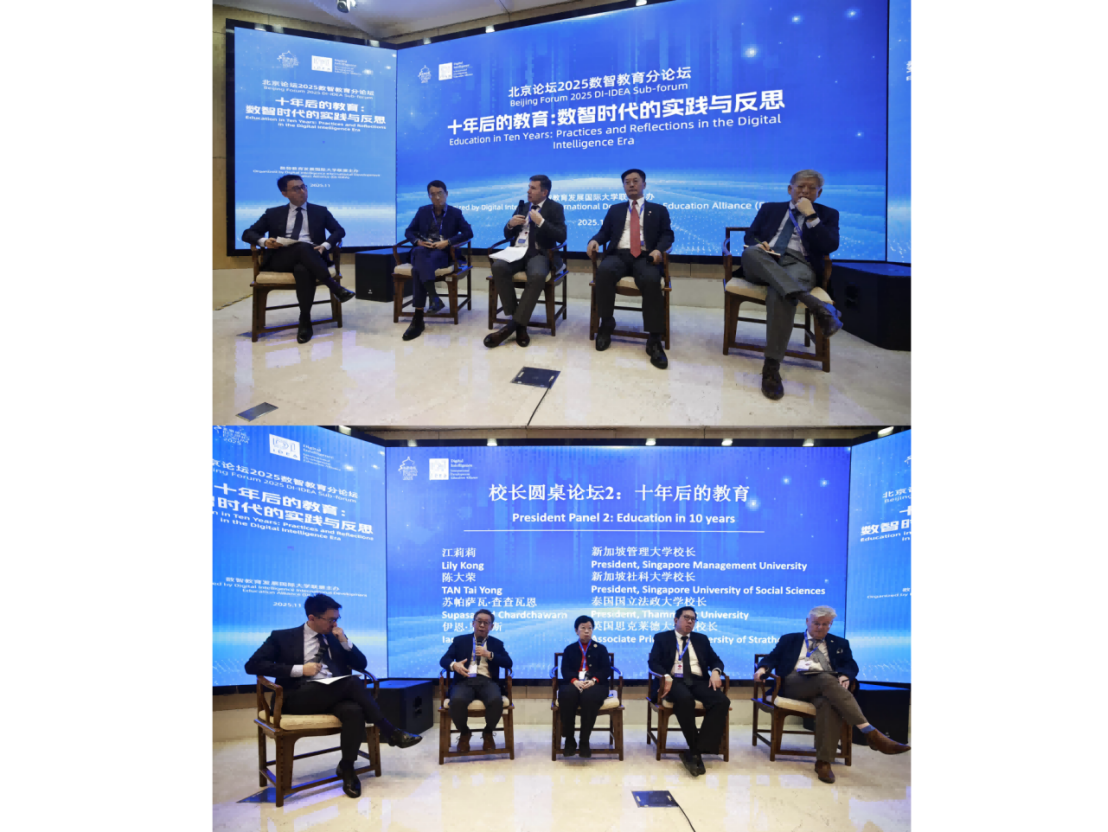
Presidents’ roundtable forum session
The 2nd Global Digital Intelligence Education Innovation Competition hosted by DI-IDEA attracted more than 720 applicants from over 100 universities worldwide. After seven months of fierce competition, six Gold Awards, thirteen Silver Awards, twenty-three Bronze Awards, ten Excellence Awards and three Special Awards were ultimately selected. At the award ceremony, four Gold Award winners gave presentations on their projects, and Shi Kaiwen, Vice President of Product Department at Feishu, commented on the competition. The award ceremony was hosted by Wang Zhouyi, Deputy Secretary-General of DI-IDEA and Deputy Director of the Teacher Teaching Development Center of Peking University.
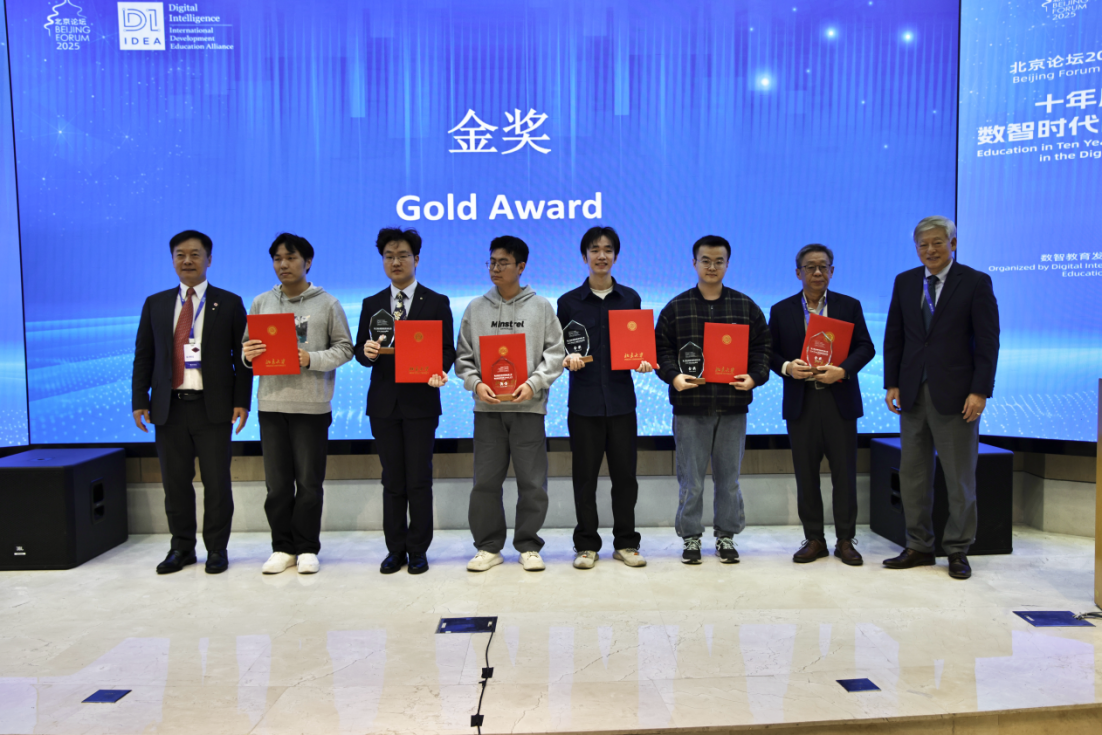
Award ceremony of the 2nd Global Digital Intelligence Education Innovation Competition
